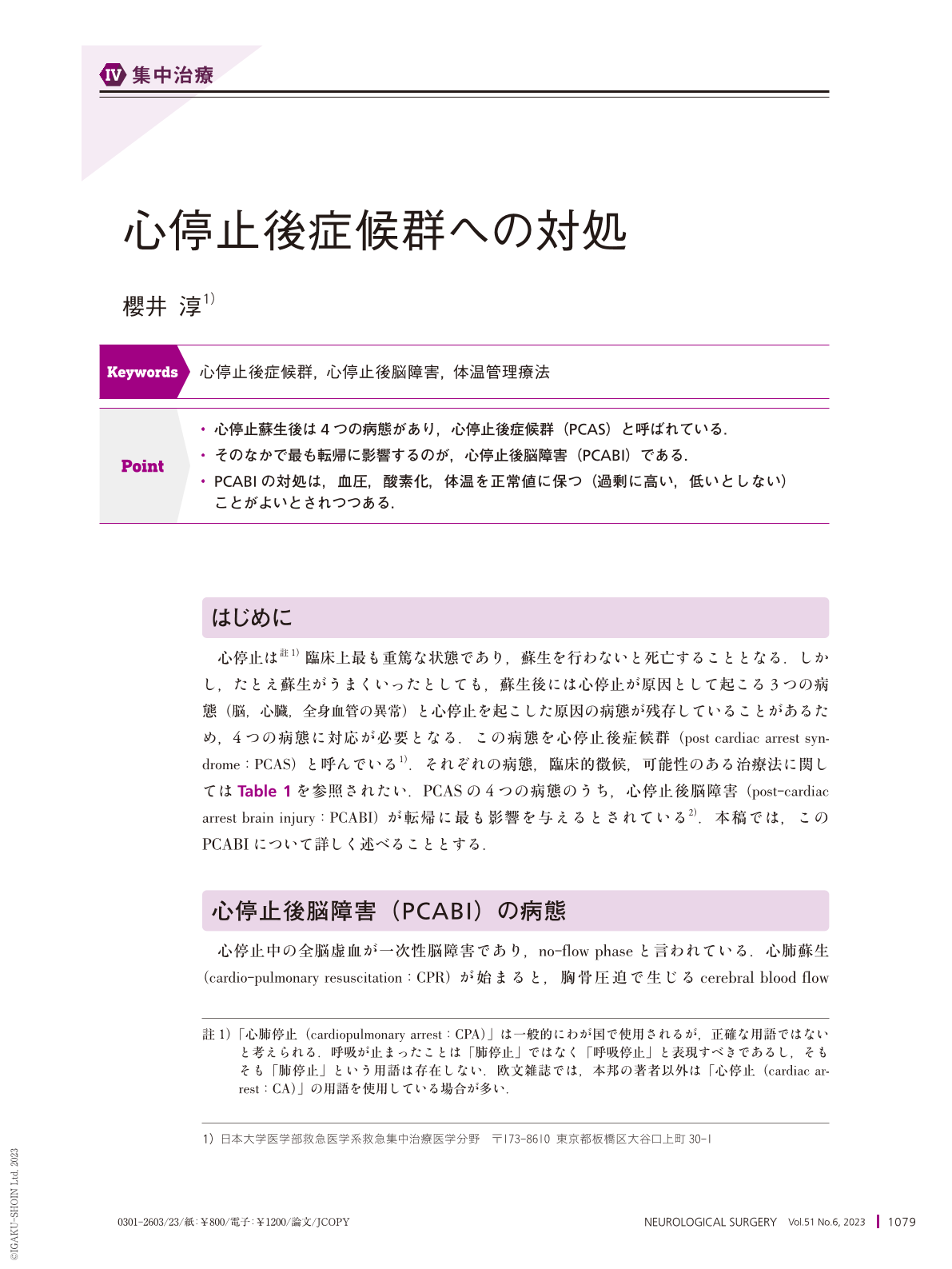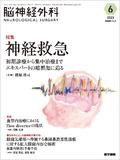Japanese
English
- 有料閲覧
- Abstract 文献概要
- 1ページ目 Look Inside
- 参考文献 Reference
Point
・心停止蘇生後は4つの病態があり,心停止後症候群(PCAS)と呼ばれている.
・そのなかで最も転帰に影響するのが,心停止後脳障害(PCABI)である.
・PCABIの対処は,血圧,酸素化,体温を正常値に保つ(過剰に高い,低いとしない)ことがよいとされつつある.
Four conditions occur after cardiac arrest resuscitation and are referred to as the post-cardiac arrest syndrome. Moreover, post-cardiac arrest brain injury has the greatest impact on outcomes. Brain injury can be primary as a result of global cerebral ischemia during cardiac arrest. It may be secondary(reperfusion injury)after initiation of cardiopulmonary resuscitation. After cardiac arrest resuscitation, the patient must be managed in the intensive care unit, and it is recommended to avoid hypotension(MAP<65 mmHg), hypoxemia, and hyperoxemia. Oxygen saturation should be maintained at 94%-98%, normal ventilation(35 mmHg-45 mmHg), and body temperature below 37.5°C for 72 h after resuscitation. The administration of anticonvulsants for abnormal electroencephalograms did not significantly affect the outcome. Prognosis should be predicted within 24 h to 72 h combining physical examination, biomarkers, electrophysiology, and imaging being predictive of poor outcomes.

Copyright © 2023, Igaku-Shoin Ltd. All rights reserved.


